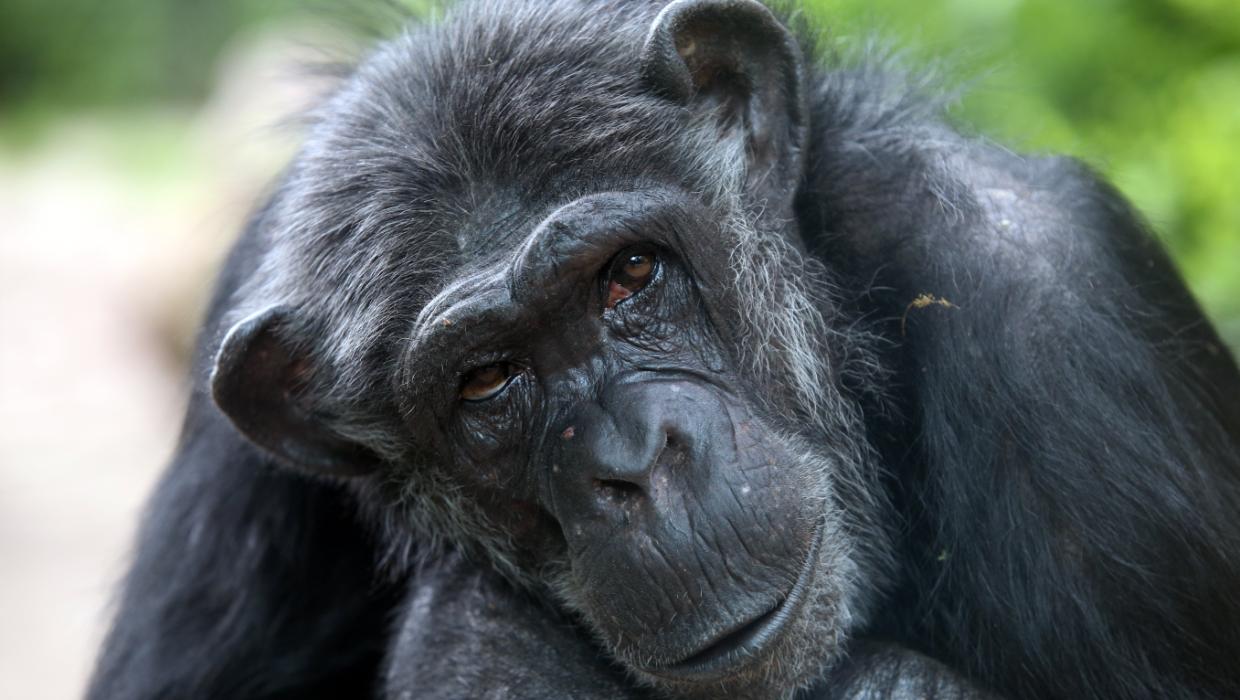Health
Chimpanzees Consume Daily Alcohol Equivalent to Beer, Study Reveals

A recent study published in Science Advances reveals that chimpanzees consume an average of 14 grams of ethanol daily, equivalent to a half-pint of beer. This surprising finding sheds light on the dietary habits of these primates, particularly their consumption of fermented fruit.
Researchers from the University of Stirling in the United Kingdom conducted the study, observing wild chimpanzees in their natural habitats. Their research indicates that the fruit, when left to ferment, produces significant amounts of alcohol, which the chimpanzees actively seek out.
Insights into Chimpanzee Behavior
The study’s findings highlight the complex foraging behavior of chimpanzees. The primates have been observed selecting specific fruits that are more likely to be fermented, demonstrating a level of discernment in their food choices. This behavior suggests that chimpanzees may be more aware of their dietary options than previously thought.
According to the study, the chimpanzees’ daily alcohol intake varies based on the availability of fermented fruit in their environment. This variation underscores how environmental factors influence the feeding habits of these animals. The research team noted that in some areas, particularly during certain seasons, the concentration of ethanol in fruit can be considerably higher, leading to increased alcohol consumption among the chimpanzees.
While the implications of this study primarily concern animal behavior, the results also prompt discussions regarding the evolutionary aspects of alcohol consumption across species. The researchers propose that understanding how chimpanzees interact with fermented fruit may provide insights into the human relationship with alcohol and its social significance in different cultures.
Wider Implications of the Findings
The implications of this research extend beyond chimpanzees. It raises questions about how other animals might also engage with fermented substances in their environments. Given that many species have been observed consuming naturally fermented fruits, this study could pave the way for further exploration into the effects of alcohol consumption in wildlife.
Additionally, the findings may impact conservation efforts. If certain habitats provide abundant fermented fruits, this could affect the behavior and health of chimpanzee populations. Understanding these dynamics is crucial for developing effective conservation strategies aimed at protecting both chimpanzees and their environments.
In conclusion, the study published in Science Advances not only highlights the fascinating dietary habits of chimpanzees but also prompts broader discussions about animal behavior and the evolutionary significance of alcohol consumption. The research opens new avenues for exploration within the fields of anthropology, biology, and conservation.
-

 Sports2 months ago
Sports2 months agoNetball New Zealand Stands Down Dame Noeline Taurua for Series
-

 Entertainment2 months ago
Entertainment2 months agoTributes Pour In for Lachlan Rofe, Reality Star, Dead at 47
-

 Entertainment4 weeks ago
Entertainment4 weeks agoNew ‘Maverick’ Chaser Joins Beat the Chasers Season Finale
-

 Sports1 week ago
Sports1 week agoEli Katoa Rushed to Hospital After Sideline Incident During Match
-

 Sports2 months ago
Sports2 months agoSilver Ferns Legend Laura Langman Criticizes Team’s Attitude
-

 Politics1 month ago
Politics1 month agoNetball NZ Calls for Respect Amid Dame Taurua’s Standoff
-

 Entertainment2 months ago
Entertainment2 months agoKhloe Kardashian Embraces Innovative Stem Cell Therapy in Mexico
-

 Sports5 days ago
Sports5 days agoJamie Melham Triumphs Over Husband Ben in Melbourne Cup Victory
-

 World3 months ago
World3 months agoPolice Arrest Multiple Individuals During Funeral for Zain Taikato-Fox
-

 Sports3 months ago
Sports3 months agoGaël Monfils Set to Defend ASB Classic Title in January 2026
-

 Entertainment1 month ago
Entertainment1 month agoTyson Fury’s Daughter Venezuela Gets Engaged at Birthday Bash
-

 Sports1 month ago
Sports1 month agoHeather McMahan Steps Down as Ryder Cup Host After Controversy




















